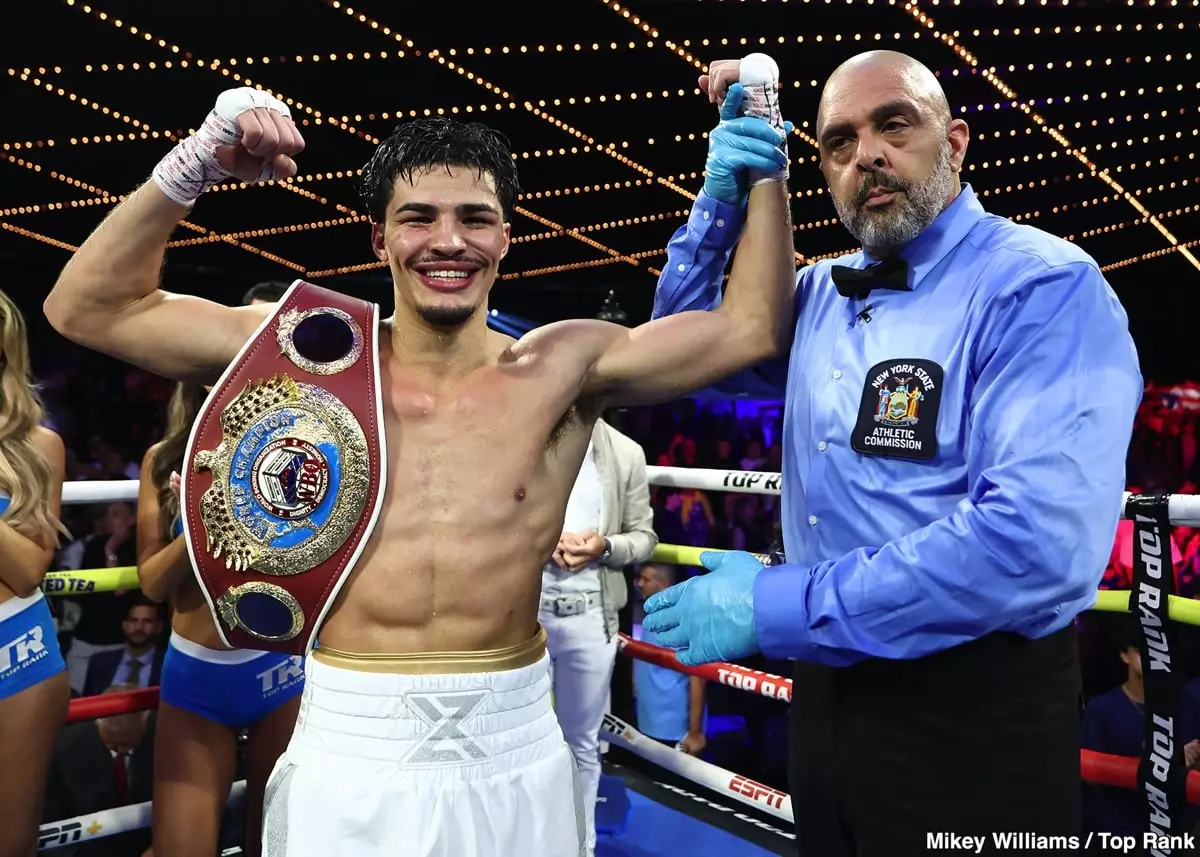In the world of professional boxing, a fresh wave of talented young fighters is reshaping perceptions of greatness. Xander Zayas, at just 22 years old, embodies this new breed. His recent victory to claim the WBO junior middleweight title signals not only his rising status but also highlights how strategic management and timely opportunities can accelerate a fighter’s career. Yet, such rapid ascent often stirs controversy, especially when older contenders view these achievements as premature or undeserved.
Zayas’s triumph over Jorge Garcia exemplifies this phenomenon. While some critics argue that he was handed an “easy” path—facing an opponent ranked highly without facing the division’s strongest—it still takes skill and composure to capitalize on such chances. Many within the sport believe that his promoters expertly choreographed his rise, positioning him for maximum success. The result is a young champion whose confidence is growing, but whose journey is still perceived by skeptics as somewhat manufactured or superficial.
The Clash of Pride and Experience
The recent social media exchange between Zayas and Vergil Ortiz Jr. exposes a deeper tension. Ortiz, a seasoned fighter with nine years in the sport but no world title to his name, dismissively called Zayas “food”. This is a clear sign of Ortiz’s frustration—not just at the remark, but at the perceived futility of his own career trajectory. His comment reveals an undercurrent of insecurity about his accomplishments and the paths laid out by his promotional team, Golden Boy.
Ortiz’s critique underscores a common frustration rooted in boxing’s complex landscape—where opportunities are often plenty but rarely equitable. Despite being an consistent presence in the rankings, Ortiz has struggled to reach the pinnacle, largely due to circumstances beyond his control. Meanwhile, Zayas’s team navigated the complex sanctioning bodies adeptly, sealing a title shot at just the right moment. This disparity in career paths isn’t just about talent; it’s about the art of maneuvering through a tangled web of rankings, negotiations, and strategic fights.
Playing the Game or Reaping the Rewards?
Critics might argue that Zayas’s rise signifies a superficial stockpile of belts, a product of promotion and negotiation rather than true dominance in the division. But this perspective misses a crucial point: in boxing, opportunity often determines legacy. Fighters like Zayas and Ortiz operate within a system that rewards strategic positioning, sometimes over pure skill or accomplishments. Many believe Ortiz’s promoters could have “worked the system” better, which raises uncomfortable questions about favoritism, timing, and management within the sport.
Ortiz’s dismissive words reflect a simmering rivalry simmering beneath the surface, hinting at a potential showdown that fans desperately want to see. Yet, beneath the bravado lies an essential debate: in boxing, is it enough to be talented or accomplished, or must fighters also master the art of timing and positioning? As Zayas continues to ascend, the sport’s double-edged sword becomes clearer—success is often as much about savvy as it is about skill.
This unspoken rivalry poses a challenge to the sport: will it evolve into legitimate competition among fighters genuinely tested against each other, or continue as a game of strategic chess? The choice will define the next chapter of boxing’s narrative, where confidence, cunning, and contention collide at the highest levels.

